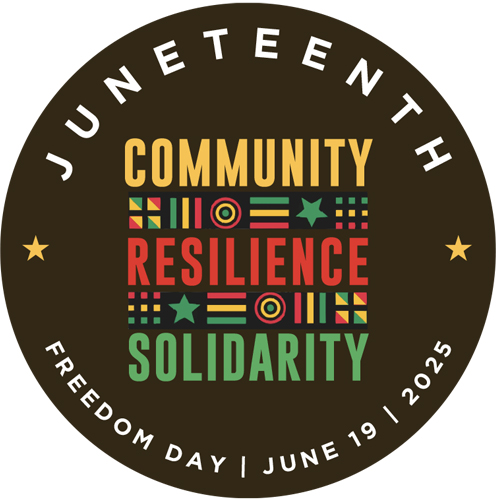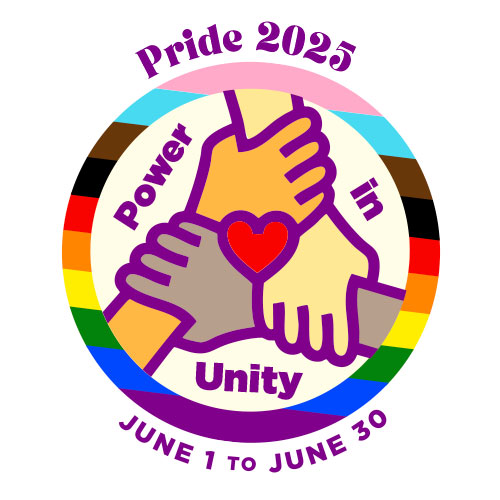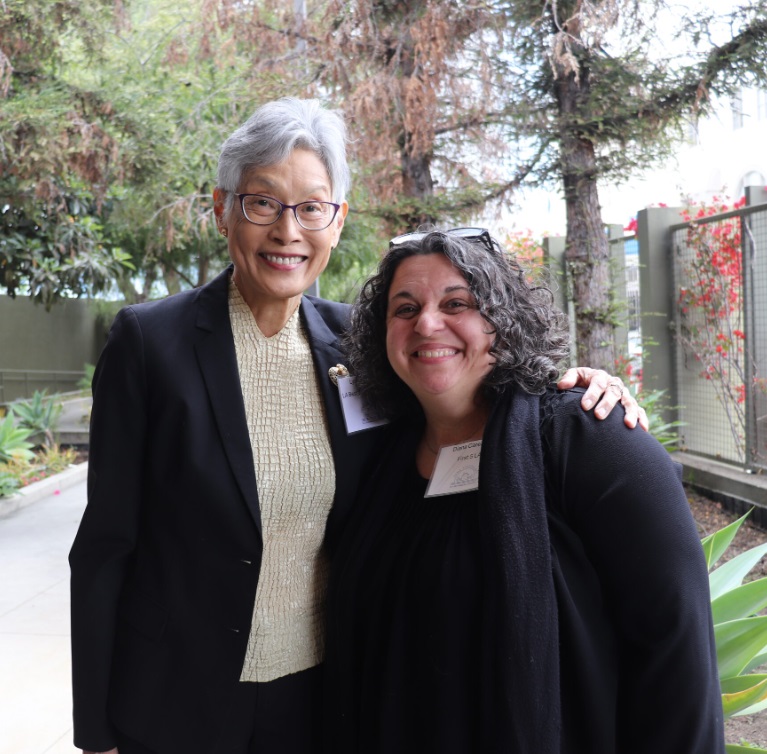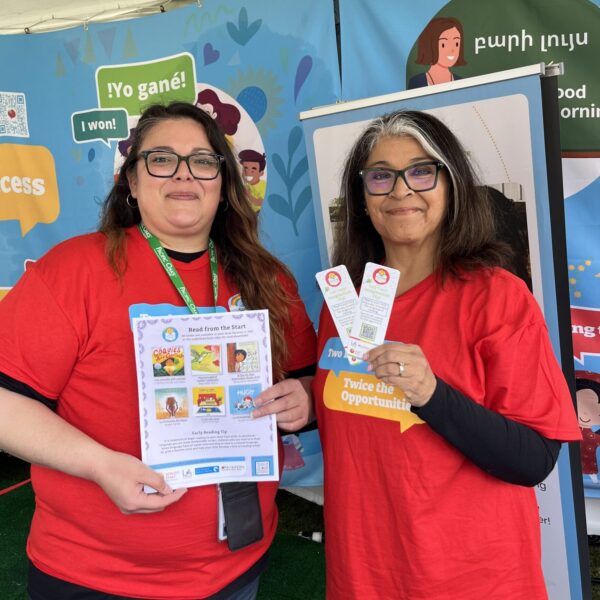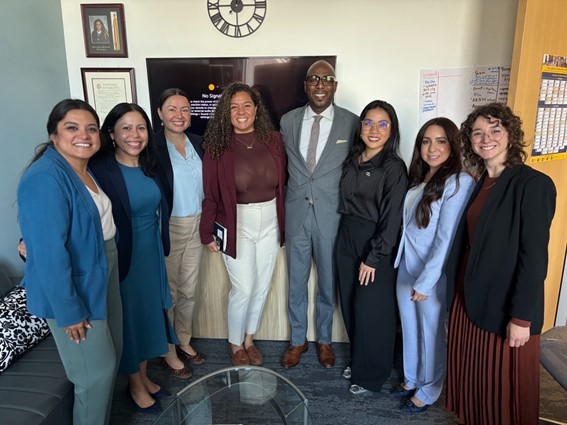June 29, 2021
In discussions about parenting and children, one group often gets overlooked: LGBTQ+ families.
With inclusiveness as one of its top priorities, LA Best Babies Network, which offers home visiting programs and is partially funded by First 5 LA, aims to change that. Last month, some 60 home visitors/parent coaches attended a Family Strengthening Network webinar, titled “Home Visiting: Supporting LGTBQ+ Families,” on how to better serve LGBTQ+ households and their unique needs.
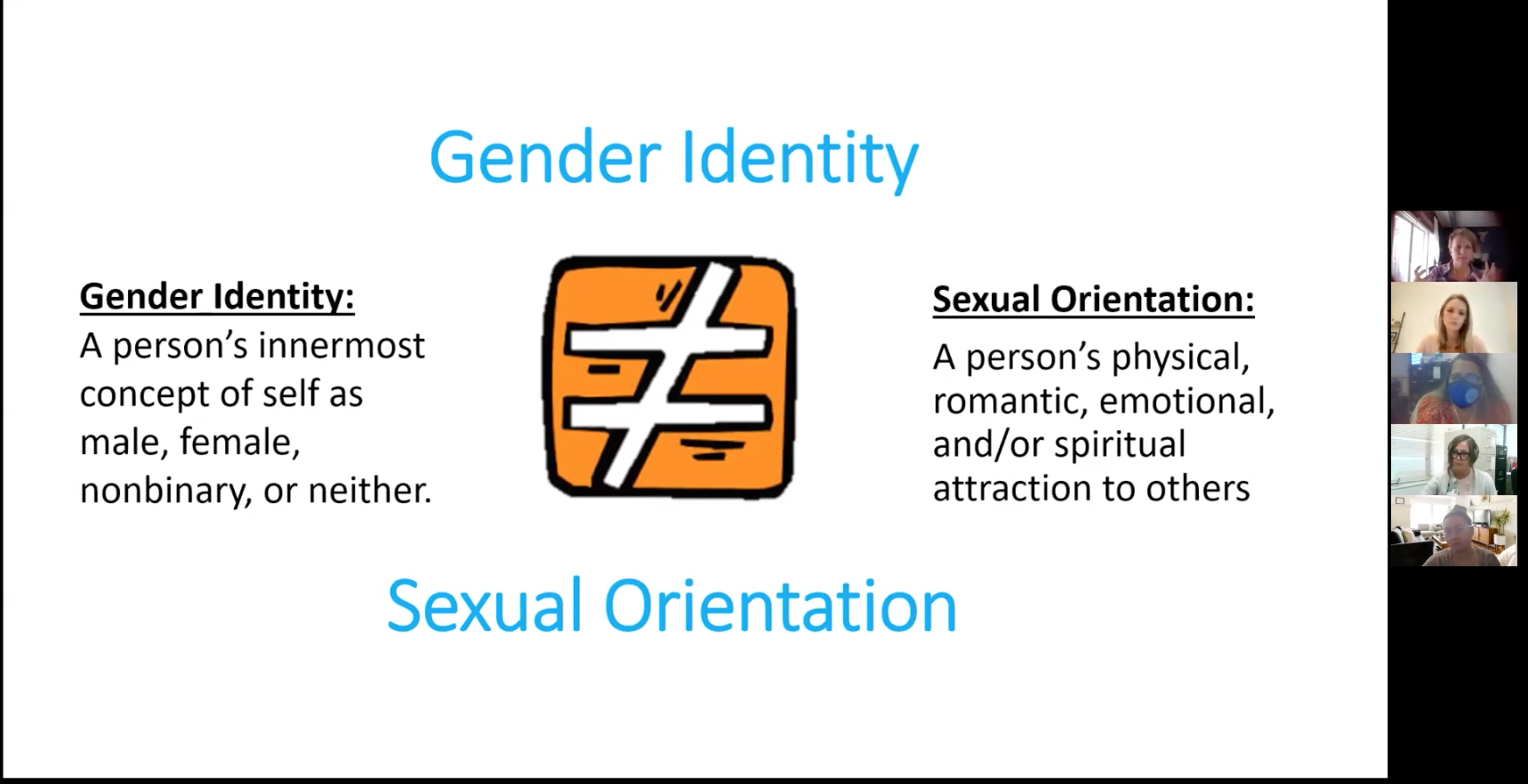
“It’s about creating affirming environments where they can be open to be themselves and share themselves as parents,” said Dr. Shannon Dunlap, a clinical social worker and researcher of LGBT health equity who presented the webinar. “It can look very beautiful and be very supportive.”
It can also present challenges to home visitors who may not be used to nontraditional parents and unintentionally use exclusive terminology or engage in microaggressions. “Same-sex couples are very new to us,” one home visitor said during the session, adding that they are seeing more LGBTQ+ families.
LA Best Babies Network sponsors two home visiting programs: Welcome Baby, which lasts from two to nine months, and the more intensive Healthy Families America and Parents As Teachers, which last three to five years. Home visiting has been shown to strengthen parental capacity, enhance child development and increase child safety. Los Angeles County has the country’s largest home visiting network, while California has one of the nation’s highest percentages of same-sex couples who are parenting children — 16 percent, according to the UCLA School of Law’s Williams Institute, a leading researcher of public policy and law surrounding sexual orientation and gender identity.
Dunlap advised that when assigned to an LGBTQ+ family, home visitors start with announcing their own preferred pronouns, then asking which pronouns the parent prefers since outward appearances don’t always accurately portray gender identity.
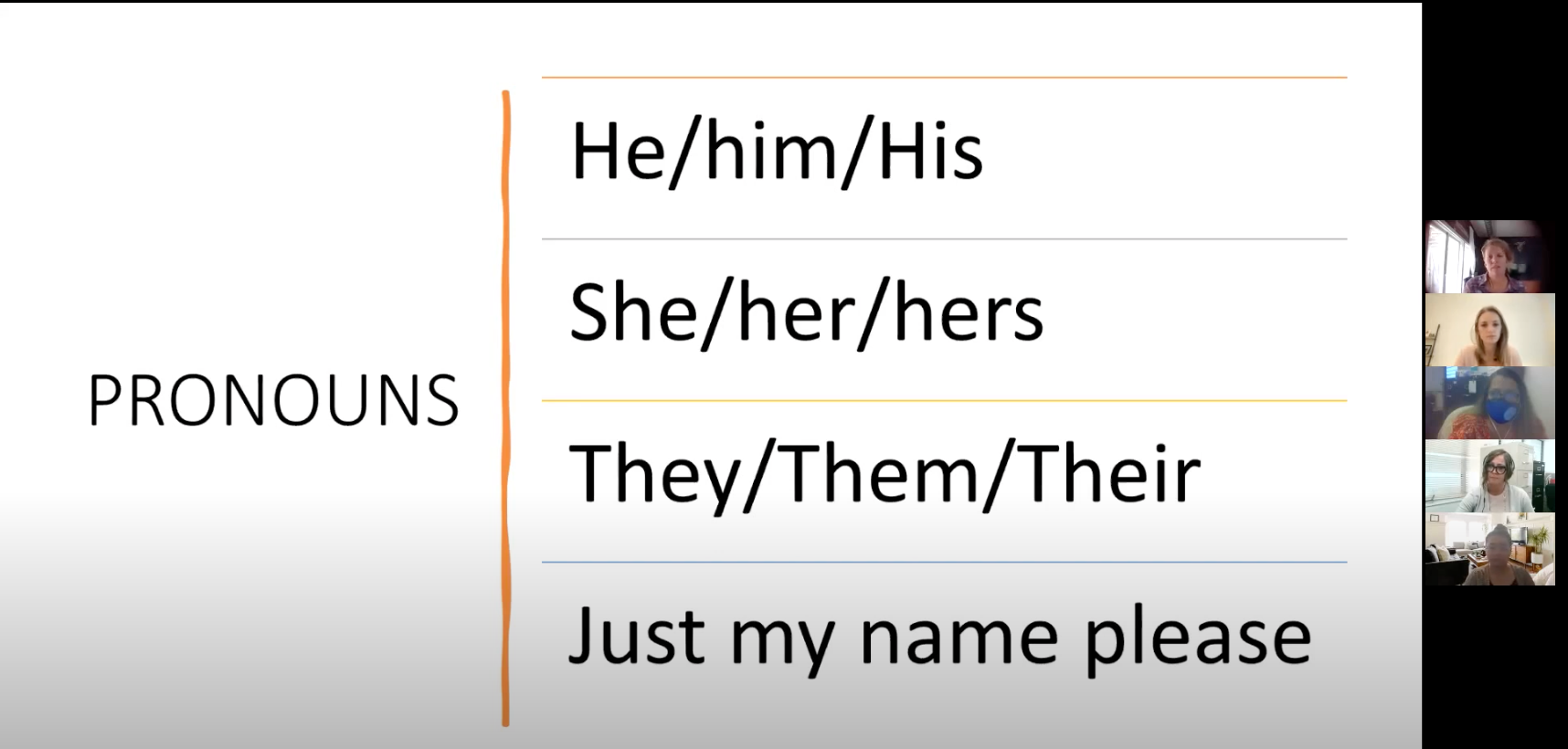
“Pronouns are really important,” she said. “It normalizes that we all have pronouns.”
Likewise, home visitors should ask about other preferred terms, such as “chestfeeding” instead of “breastfeeding,” and refer to the person who gave birth as the “birthing parent” instead of “mother.” But, she noted, asking someone’s sexual orientation is intrusive unless it has direct bearing on home visiting services.
“It’s okay if you get it wrong. Just apologize and move on. What’s important is that we don’t make the perceived slipups persistent and consistent. That’s stigma.” – Dr. Shannon Dunlap
Wearing a rainbow pin, the LGBTQ+ community symbol, or the transgender pink, blue and white striped flag, is another way to signal that a home visitor is an ally, she said.
Dunlap acknowledged that navigating new terminology can create pressure on the home visitor to get it right.
“It’s okay if you get it wrong. Just apologize and move on. What’s important is that we don’t make the perceived slipups persistent and consistent. That’s stigma,” she said.
Home visitors must keep in mind that many LGBTQ+ people have experienced bias throughout their lives, which can make them more sensitive to perceived rejection. It also creates a baseline of stress among LGBTQ+ people, which can be exacerbated by the common feeling among new parents of being overwhelmed by an infant’s needs, in addition to often having little family support due to estrangements.
“What can we do to buffer some of that stress? We must have empathy,” Dunlap said.
That also includes having patience. LGBTQ+ people may not share themselves until they are sure they will be accepted and not judged or dismissed. “People who have experienced stigma and discrimination put up barriers right away. Relationship-building can take time,” she noted.
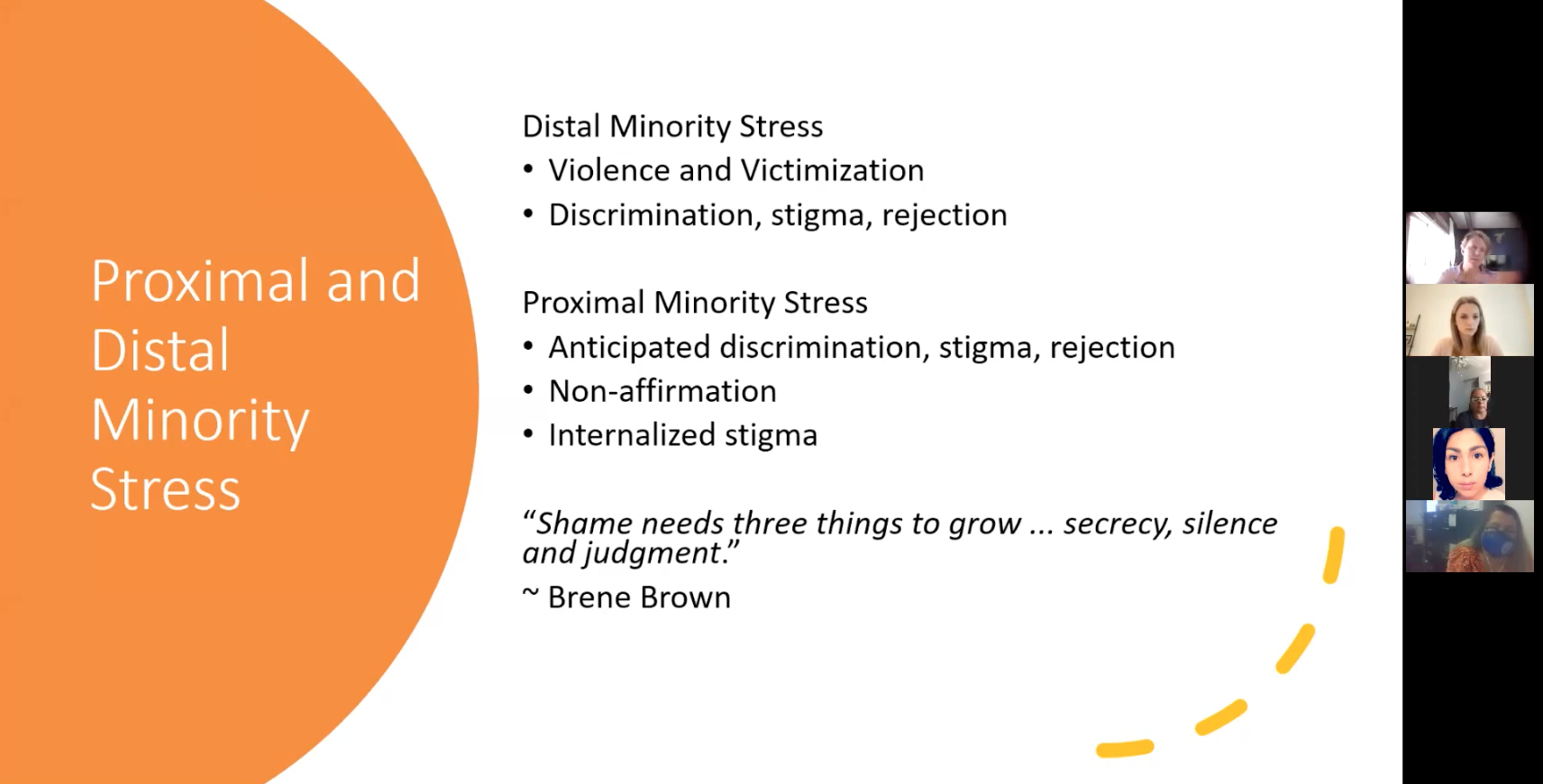
Maria Aquino, a senior program officer at First 5 LA, said the training was the first to focus on LGTBQ+ families, an idea that came about after home visitors chatted among themselves about issues concerning LGBTQ+ clients. As a result, LA Best Babies Network decided to hold a formal training in conjunction with Pride Month in June.
Aquino said children’s books that feature diverse parents and families are given to clients, but added that she hoped the parent coach trainings would become a standard element in home visitor education in the same way that father engagement has been incorporated as an essential course.
“We must affirm and include every kind of family.” – First 5 LA Program Officer, Maria Aquino
Webinar participants said they welcomed the information. One parent coach said she had a client with an intersex baby (born with male and female organs) while another said she had a seventeen-year-old foster youth, a transgender man, who suffered port-partum depression after giving birth. Others said they would like translations of new terms in Spanish.
Both Aquino and Dunlap said that not a lot of research nor resources exist about or specifically for LGBTQ+ parents, which makes this specialized training for home visitors even more important.
“We must affirm and include every kind of family,” Aquino said.



